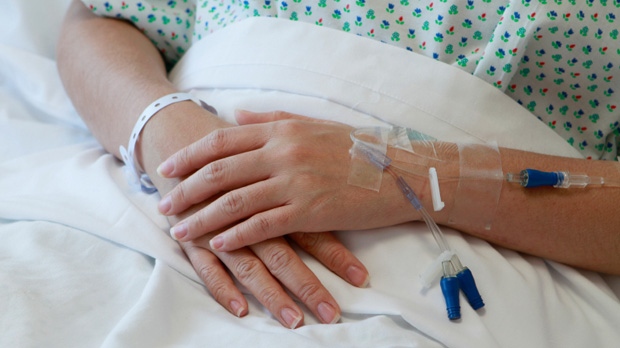Women who underwent chemotherapy or surgery for gynecologic cancer and also had COVID-19 infection did not appear at significantly increased risk for death due to the novel coronavirus, according to study findings published in Cancer.
However, recent immunotherapy use appeared associated with increased risk for COVID 19-related mortality, researchers noted.
“Initial reports out of China that showed increased severity and risk for death associated with COVID-19 among patients undergoing cancer therapy and surgery were based on very small numbers of patients with cancer,” Bhavana Pothuri, MD, MS, professor in the department of obstetrics and gynecology at NYU Langone’s Perlmutter Cancer Center, told Healio. “In addition, very few women with gynecologic cancer were included in the studies and we noticed very different observations clinically, which is why we worked with our collaborators at other NYC institutions to report outcomes of a diverse group of gynecologic oncology patients.”
Pothuri and colleagues pooled data on demographics and clinical outcomes of 121 women (median age at diagnosis, 64 years; interquartile range, 51-73) with gynecologic cancer who had been diagnosed with COVID-19 infection between March 1 and April 22 and received treatment across six New York City-area hospitals.
Most women (62.7%) had advanced-stage cancer. The most common cancer types included high-grade serous ovarian, fallopian tube or primary peritoneal cancer (27.3%), low-grade endometrial carcinoma (21.5%), high-grade endometrial carcinoma (18.2%) and cervical carcinoma (10.7%).
Results showed an overall mortality rate of 14%. More than half of women (54.5%, n = 66) required hospitalization, and among them 45 (68.2%) required respiratory intervention, 20 (30.3%) were admitted to the ICU and nine (13.6%) underwent invasive mechanical ventilation. None of the women who required mechanical ventilation survived.
Factors associated with hospitalization included age older than 64 years (RR = 2.22; 95% CI, 1.29-3.81); Black race (RR = 2.22; 95% CI, 1.22-4.06); and having three or more comorbidities, including hypertension, diabetes and obesity (RR = 2.01; 95% CI, 1.17-3.44).
Three-quarters (75%) of women had a mild form of COVID-19 infection and recovered, researchers noted.
Late-stage gynecologic cancer, receipt of high-dose chemotherapy and recent major surgery did not appear predictive of COVID-19 severity or death. Conversely, recent immunotherapy use appeared associated with a nearly threefold increased risk for death due to COVID-19 (RR = 2.93; 95% CI, 1.05-8.17), which Pothuri said surprised researchers.
“We were expecting immunotherapy to be protective, as it boosts the immune system, but perhaps it adds to the cytokine release storm with COVID-19,” she said.
However, Pothuri noted the small number of women on immunotherapy, which explains the wide confidence interval, and said this observation needs to be confirmed in a larger cohort.
“Given that we did not find any association of worse COVID-19 outcomes in patients who received chemotherapy or surgery, the most important takeaway is that patients should seek care for their gynecologic cancer regardless of the pandemic — especially since the pandemic seems to be increasing and will likely continue into 2022,” Pothuri said. “Patients should not only continue to receive their screening and preventative measures, but also continue with active therapy for cancer, such as surgery and cancer treatments, to optimize their cancer outcomes.
This article was published by Healio.


